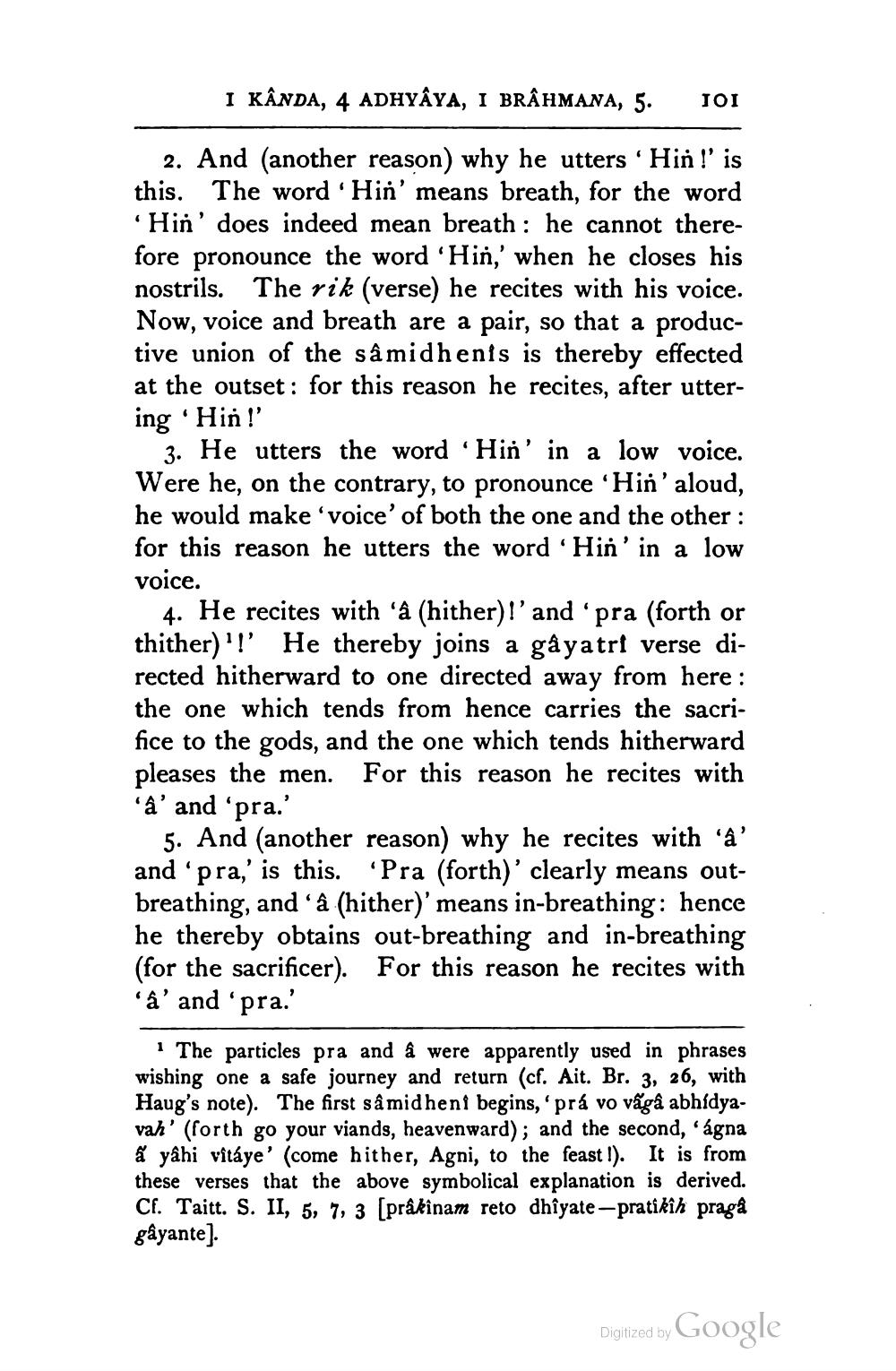________________
I KÂNDA, 4 ADHYAYA, I BRÂHMANA, 5.
101
2. And (another reason) why he utters 'Hin!' is this. The word 'Hin' means breath, for the word
Hin' does indeed mean breath : he cannot therefore pronounce the word 'Hin,' when he closes his nostrils. The rik (verse) he recites with his voice. Now, voice and breath are a pair, so that a productive union of the sâmidhenis is thereby effected at the outset : for this reason he recites, after uttering ‘Hin!'
3. He utters the word 'Hin' in a low voice. Were he, on the contrary, to pronounce 'Hin' aloud, he would make ‘voice' of both the one and the other : for this reason he utters the word 'Hin' in a low voice.
4. He recites with 'à (hither)!' and 'pra (forth or thither)'!' He thereby joins a gâyatri verse directed hitherward to one directed away from here : the one which tends from hence carries the sacrifice to the gods, and the one which tends hitherward pleases the men. For this reason he recites with 'à' and 'pra.
5. And (another reason) why he recites with 'a' and 'pra,' is this. “Pra (forth)' clearly means outbreathing, and a (hither)' means in-breathing: hence he thereby obtains out-breathing and in-breathing (for the sacrificer). For this reason he recites with 'a' and 'pra.'
1 The particles pra and a were apparently used in phrases wishing one a safe journey and return (cf. Ait. Br. 3, 26, with Haug’s note). The first sâmidheni begins, 'prá vo väga abhídyavah' (forth go your viands, heavenward); and the second, ágna å yâhi vitáye' (come hither, Agni, to the feast !). It is from these verses that the above symbolical explanation is derived. Cf. Taitt. S. II, 5, 7, 3 (pråkinam reto dhîyate-pratikîh praga gâyante).
Digitized by Google




